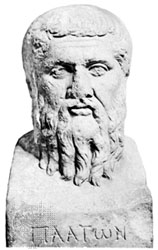


Tensions between different self-images of the Platonic Socrates may arise, for instance, in regard to his professed unfamiliarity with forensic language and lack of mastery concerning rhetorical persuasion (see Apology 17a1-18a6) for such assertions seem to heavily collide not only with his use of a vast array of rhetorical devices 1, but also with a good knowledge of the various stages through which a defense speech ought conventionally to be structured. In fact, one might entertain the impression that different voices and attitudinal approaches are unleashed from one and the same character, and also that these might not provide an internally consistent portrait of his own professed values, abilities, and epistemological limitations. Coming to grips with such images may turn out to be a particularly baffling experience for the Platonic reader, especially when one attempts to draw a coherent picture of Socrates's personality and conduct at the trial in the light of the various forms of self-representation proposed in the text.
One of the most noticeable aspects of Plato's dramatization of Socrates in the Apology is that many themes of philosophical relevance emerge by way of a series of self-images that Socrates crafts throughout the defense speech he delivers at the trial held against him in 399 BCE. In the last section, an alternative interpretation of the benefit of Socratic conversation is offered, which seeks to illuminate what is involved in the philosophical, examined life Socrates advocates. I then proceed to point out descriptions Socrates gives of the ways in which we are motivated to act and the ways in which opinions are formed and changed that do not fit with the intellectualist position. I show that the use of the term elenchos and its cognates in the Apology does not support the view that they are used to refer to Socrates’ questioning as a method of refutation. In this chapter I ask whether this description fits well with a widespread way of understanding this practice according to which Socratic conversation is a method (now standardly termed “the elenchus”, from the Greek noun elenchos) for discovering truth by refutation of false beliefs – a method, moreover, regarded as embedded in the position termed Socratic intellectualism. The Apology contains one of the rare instances in the Platonic corpus where we find Socrates describing his practice of questioning, and not only a depiction of him performing it. The chapter takes issue with a common view of Socrates’ philosophic practice.
Vivil Valvik Haraldsen, Olof Pettersson and Oda E. Chapter 11 in *Readings of Plato's Apology of Socrates - Defending the Philosophical Life*, eds.


 0 kommentar(er)
0 kommentar(er)
